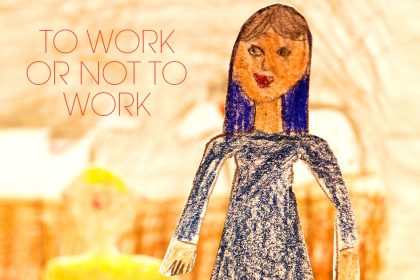Are you worrying yourself into pain? How to ‘think’ your way to better health
Are you worrying yourself into actual, physical pain? Find out how negative emotions can turn into real illnesses, why female pain isn’t taken as seriously, and how to ‘think’ yourself to better health.
We’ve known for a while that over-worrying and not taking proper care of your mental and physical health can have a negative impact on your life. But we weren’t aware of just how physically damaging it could be, and how it could lead to a range of conditions like IBS, back pain and migraines.
In this article, Richmond Stace from Specialist Pain Physio explains why pain is such a chronic affliction, why women and men are treated differently for pain by healthcare providers. And importantly, how you can take control of pain by thinking more positively and practising mindfulness.
We don’t understand pain
Chronic pain is a huge, global health burden that costs both individuals and society enormously in terms of finances and suffering. (According to figures, 100 milliion Americans suffer persistent pain – 20% of the population and one in five children.)
And one of the biggest problems in treating pain effectively, is that society doesn’t really understand it. If we did:
- We’d know what to do and think in order to orientate ourselves towards getting better.
- Instead of fearing pain we’d focus on overcoming it.
- Healthcare would deliver the right messages early on, so that the right actions are informed by correct beliefs about pain.
- The right treatment approaches would be employed from the outset.
- There would not be the same level of suffering.
Women suffer more pain than men
Women are reported to suffer more pain and visit their doctor more often about pain than men. They’re also more likely to suffer functional pain syndromes – a real, perceived pain that has no immediately obvious cause.
However, there are still many people, including healthcare professionals, who don’t know what functional pain syndromes are, or properly understand how to treat them. Some common examples of functional pain syndromes include:
- Irritable bowel syndrome (IBS).
- Migraine and headache.
- Back pain.
- Fibromyalgia.
- Pelvic pain (e.g. vulvodynia, painful bladder syndrome, dysmennorhoea).
- Temporomadibular dysfunction (TMD) – a problem affecting your chewing muscles.
Other regular features include anxiety, depression, a history of early life events (and later in life when a challenging situation brings about pain and suffering), perfectionism, a person who is very hard on themselves and hypermobility.
Men and women aren’t treated equally for pain
But while women may visit their doctors more often about pain, research into causes and treatment are lacking – most research is conducted in males and male rats.
We’re also less likely to get an understanding reception, as the way men and women are treated for symptoms of pain differs vastly. Women wait longer for treatment, are less likely to receive opiates for pain and are deemed to be more emotional (and receive different treatment as a result).
But why is that? Some believe that we do experience pain differently thanks to our hormones. (In research, women rated pain high in their menstrual and pre-menstrual phases.) Others assume we’re more empathetic, thanks to our roles in caring for our children, and may take on others’ suffering as a result.
How negative emotions can lead to real physical pain
But perhaps another reason is lack of self-care and negative emotions. One emotion that often comes up when a patient, particularly female patients, is talking about their pain is guilt – usually based around the conflict between work, home, partner and children – trying to please everyone else while ignoring their own needs.
The problem with worrying and being too hard on yourself, is that it takes you closer to your biological protect line, the point at which threat is perceived and enacted as a pain experience.
Strung together frequently, negative emotions form the basis for chronic stress, which in turn is the means for a pro-inflammatory state, which emerges as aches and pains, troubled tummies, headaches, mood changes, sleep issues, fertility problems and more.
The reason is simply that in the pro-inflammatory state, the body is in survive mode – ready to defend itself from a threat (even if that threat is just in our minds).
How to ‘think’ yourself to better health
There’s nothing wrong in experiencing negative emotions – we need them as much as positive emotions. It is really about the appropriateness of the emotions: when we feel them, how long we feel them for, how often etc.
If we consistently think that something bad will happen, or ruminate on things that have happened rather than seeing things for what they really are in this moment, then this basic survival biology will keep going.
This is where mindful practice is so beneficial, cultivating awareness of existing habits that allows for a reappraisal – a space to see things for what they are and gain insight into the causes of your own suffering and others, from which you can choose a new and healthy way forward.
We need to do more to understand and tackle pain
While this article merely scratches the surface, I hope it provides some food for thought. This is a significant public health issue that we can tackle by understanding pain and applying simple and sensible compassion-driven care, which will make a huge difference.
Coaching the individual woman to coach herself in a direction that is toward her desired outcome is our role as we empower individuals and allow them to realise their sense of agency in getting better.
There are simple measures such as movement, exercise and mindfulness that work in synergy to create a meaningful, enjoyable life. And if you have muscle aches you can always try CBD creams.
So that when challenges arrive, they are overcome and used as learning experiences. Science, compassion and sense are at the heart of the Pain Coach approach, one that we can all adopt to change for the better. Ourselves and our patients.
Read more advice on good mental practice
You can find more helpful advice on adopting positive mental strategies in these articles:
- The seven biggest mistakes stressed women make
- Do you worry too much? Learn an easy 4-step technique to stop!
- How to avoid (and beat) anxiety and depression
- Seven simple tactics to tame your negative inner voices
You can learn more about Specialist Pain Physio on their website.










